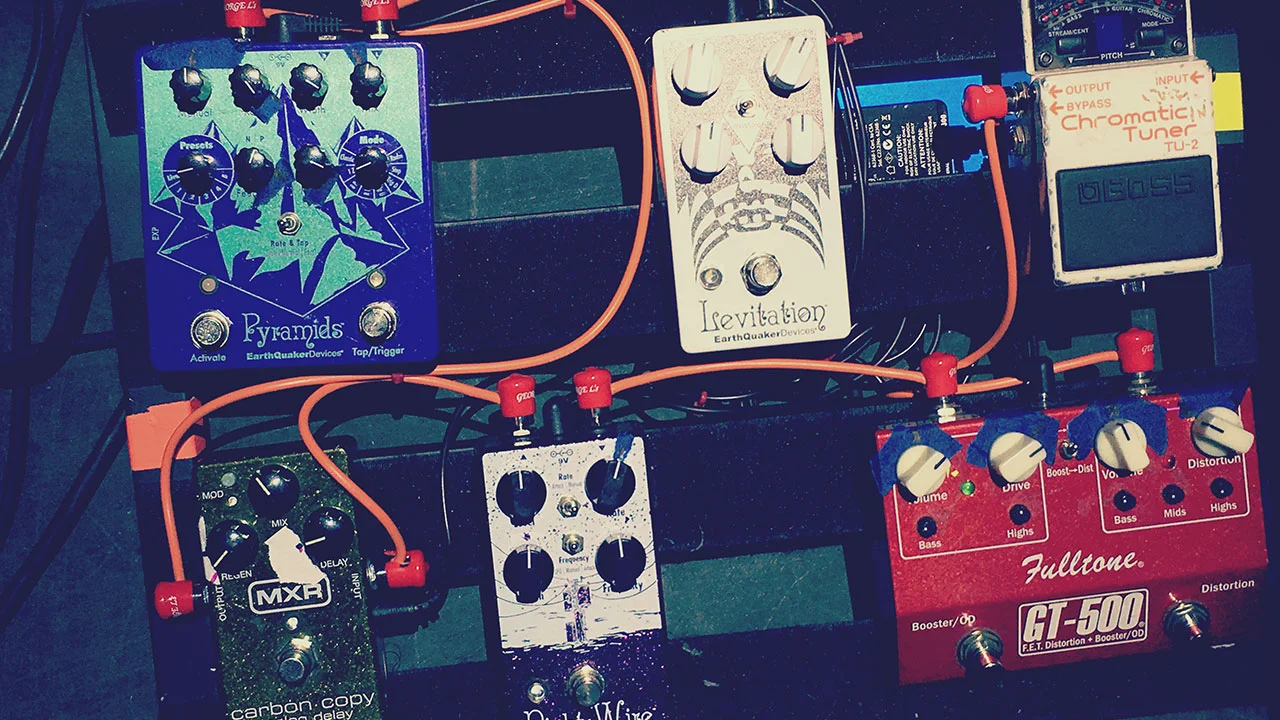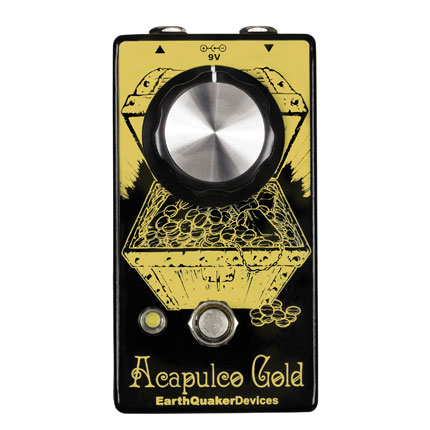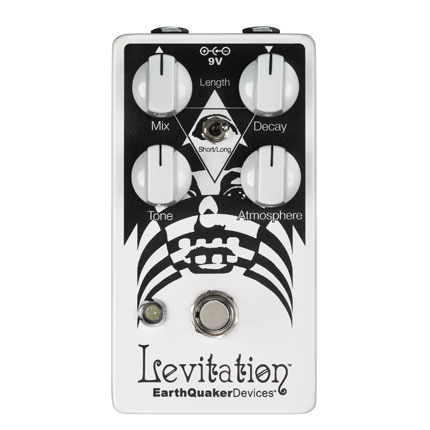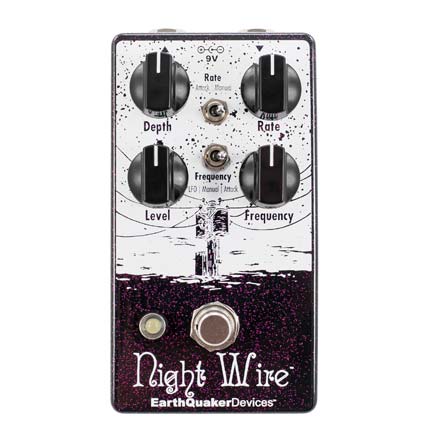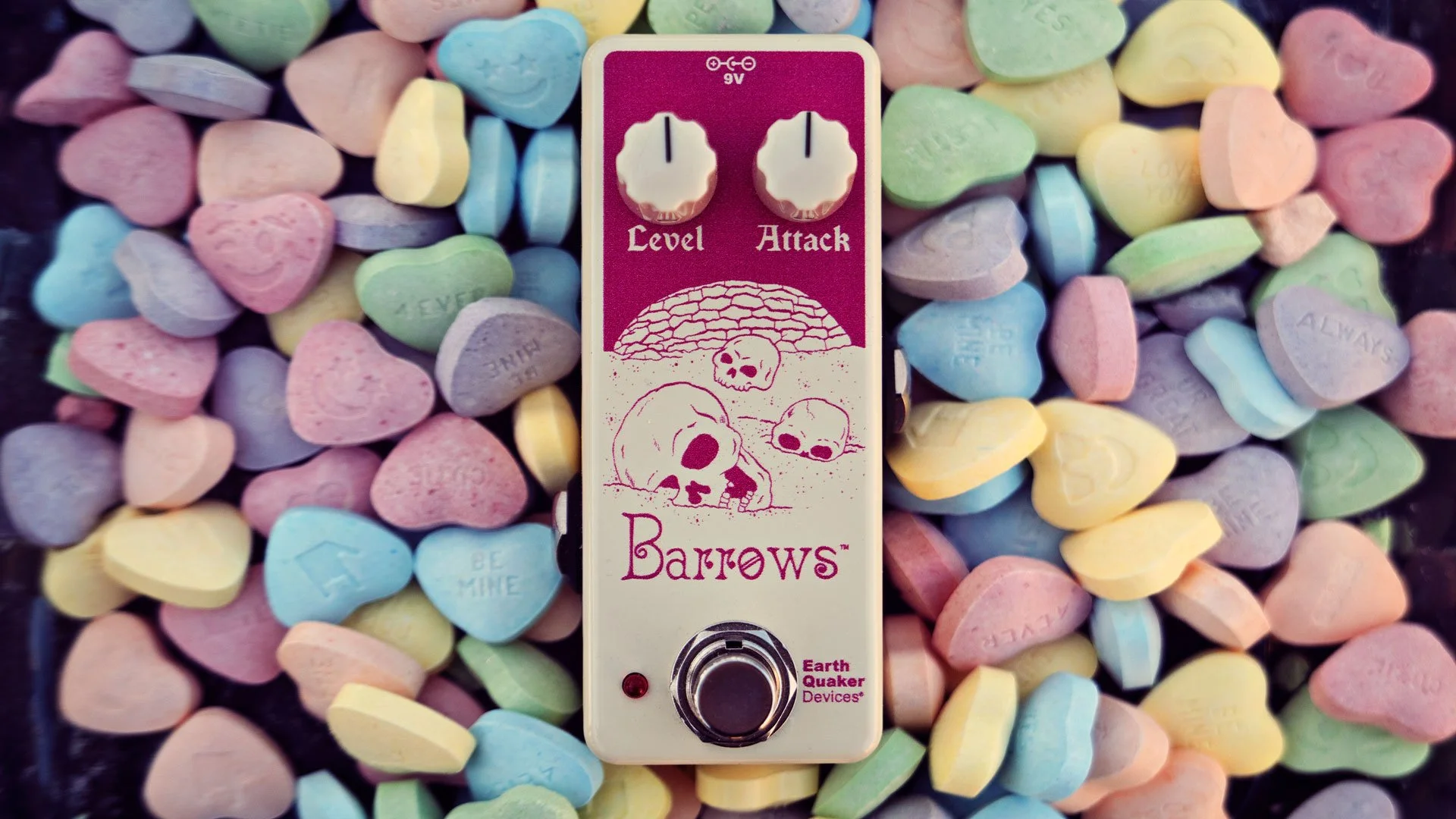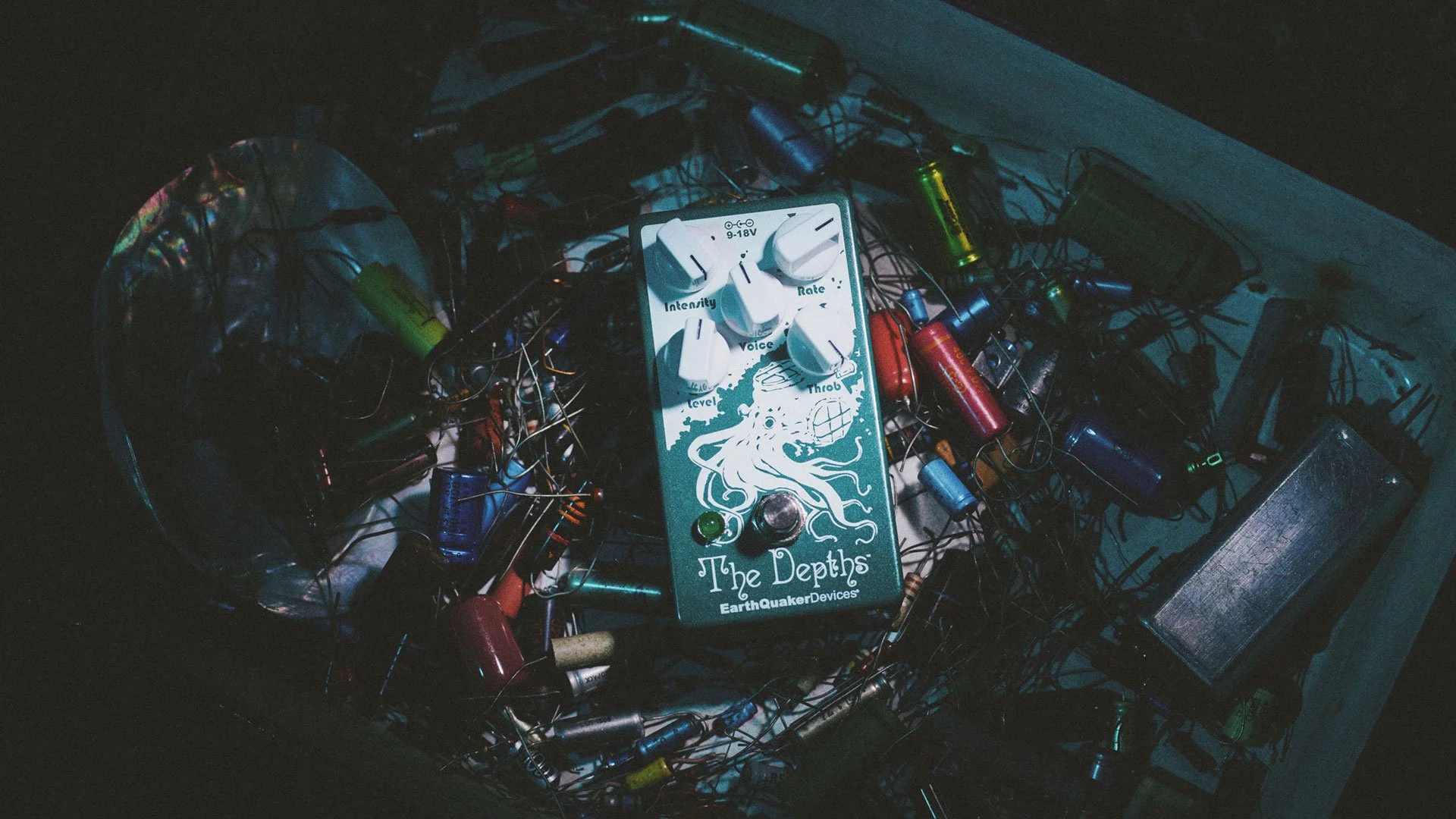Interview: Ex Hex
Guest User
If you don’t know Ex Hex, let’s just cut to the chase. Watch their “Rainbow Shiner” video. Now.
Okay, now that we’re all on the same page, let’s proceed.
Ex Hex finds the sweet spot between 70s classic rock, power pop and punk, 80s arena rock, 90s indie rock and grunge, and timeless garage rock. Started in 2013 by Mary Timony (guitar, vocals), Betsy Wright (guitar, bass, vocals), Laura Harris (drums), and now joined by touring member David Christian (bass), Ex Hex is quietly saving rock n roll. They’re not too in-your-face about it, but go to a show, and you’ll walk away in a daze, wondering how the hell you’ve gone this long without having seen these guitar god torch bearers. Or maybe you have seen them, in which case you’ve secured your membership in the coolest club since whatever that thing you were in in high school.
Timony and Wright make a formidable team, playing off each other’s strengths, supporting each other with guitar and vocal lines that are complimentary but never overpowering, and offering songwriting styles that can feel vastly different but still make perfect sense together. Talk about the whole being bigger than the sum of its parts…Ex Hex basically wrote the book.
I met up with Timony and Wright before their show at Brooklyn’s Elsewhere in May. At the tail end of a months-long tour, they were more kind and gracious than anyone should ever be.
Anna Blumenthal: I'll start by thanking you for saving rock and roll. The matching leather pants, the SGs and Flying V's, dueling guitar solos, neon backdrops…it works really well. It’s really exciting.
Betsy Wright: Cool. Thanks!
Mary Timony: Thanks!
AB: How did the band meet?
BW: Well, we're all from the DC area. It’s a very small town if you're doing music because it's not that big of a music scene. If you play music, you're going to bump into everybody, and over the years we all just met.
AB: You were a three-piece for a while. Betsy, you were on bass, and now you added a bass player and you both play guitar. How has that transition been? Was it an adjustment to figure out how to split up the rhythm and lead parts live?
BW: Well, we made the record with a bunch of guitar parts.
MT: Yeah, we both play guitar on the record, so that was no problem. It took us a little bit of time to figure out the first record, but we also both played guitar on that record.
BW: There's definitely layered guitars on the first record.
MT: Yeah, the way we approached writing the records is, whoever can do the part, does the part. Betsy and I bring in songs and we arrange them together. It took a little thinking. We were really nervous about the live shows; there was a lot to figure out.
BW: I think [we had to figure out] the sounds of the guitars and which guitars we were going to use. We're still not attached. We're like, “Oh maybe we should get these different amps, maybe we should do this and that.” It's a process and you're always changing gear.
MT: We got the EarthQuaker pedals after we recorded. They’re pretty important to us live. Especially the Pyramids.
BW: Yeah, I’ve got the Pyramids. I've got three EarthQuaker pedals on my board.
MT: We both use the Pyramids. At the same time.
BW: I have the Levitation which is great. I use it on most songs, I just change the levels. Then I have the Night Wire. It’s my favorite tremolo pedal I've ever tried. It's so smooth sounding, I love it. It's just a beautiful pedal.
AB: I've never heard of two band members both using the Pyramids at the same. That's really cool.
MT: Yeah, we were excited about that. On one part of a song we both have it on.
AB: Different settings?
MT: I feel like I need to tweak my settings a little bit. But the idea is to have the flangers intertwining.
BW: I think they are on different settings. I don't even know what your settings look like.
MT: I need to tweak my settings a little bit. That pedal just does so much.
BW: That pedal is crazy. I still don't understand it. But I feel like I get lucky sometimes and I get the thing I want. I'm like, “Don't touch it!”
AB: Yeah there's a lot with that pedal to unpack. Maybe you can make presets, to make it easier. It goes so far beyond the classic flanger.
BW: Yeah. Definitely.
MT: I need to spend more time with it.
BW: I have the phaser too, the Grand Orbiter. I really like that but I took it off my board cause I try not to have too many pedals. I might use it later on. I like it a lot.
MT: And I use the Acapulco Gold which is great.
AB: Do you write together?
MT: Yeah. I don't think we've ever sat there and like, been like, “Let's make up a song.” But someone will say, “I have this, what do you think?”
BW: Yeah. It's more like one of us has an idea and the other person helps arrange it. Or, “Maybe try this for the bridge.” The bridge is the most flexible part.
MT: If you have a verse and chords, you have a song but it might need more stuff.
BW: And it's cool if the outside person can be like, “What about this chord for the bridge?”
AB: I was listening to your Spotify playlist called “It's Real”, which I assume is songs that inspired your new album?
MT: Yeah.
AB: All the songs are so different but they make so much sense together when you listen to It’s Real. It's easy to see how they all influenced you. I was wondering if you draw inspiration equally from all these different genres: 70s power pop, punk, psych, 80s metal, 90s rock, and new indie bands.
BW: I feel like you absorb all the things that you love and then, whatever comes out, that's what's coming out. Nothing happens in a vacuum.
AB: Have your influences and the idea of what you want Ex Hex to sound like remained consistent since the band started, or have they changed since you’ve been playing?
MT: They changed a little bit. We started out doing a garage rock, really straight-ahead thing. That was the idea, just making it as simple as possible. This new record we definitely knew we wanted to sound bigger. Like, more sounds. Not just blown-out garage rock. Even the way the Rips record was mixed was really blown out. This one we wanted to sound more present and big. That was the main thing we knew. And then we just collected ideas. I think it's definitely less garage rocky and less straight ahead.
BW: It's still pretty all over the place.
MT: I mean, yeah, it's a little more all over the place than the first one (laughs).
AB: Betsy, playing in Bat Fangs, how easy or hard is it to write songs for two different bands that share some influences? Do you have to make a concerted effort to write different types of songs for each band?
BW: You think about the people that are going to play the stuff when you write, so you can imagine the group. Each group has its own entity or has its own energy. So it's different when you're envisioning where the song is going. Sometimes you just write songs and fit them in to whatever thing you're in. But I think most of my songs have a Betsy thing. No matter what band I'm in. Same with Mary. You can hear the Mary-ness.
MT: I often have a really hard time writing music so I just feel lucky when anything works.
AB: You have a hard time writing music? Really?
MT: Yeah. Really hard.
AB: I'm surprised. You're so prolific.
BW: She’s written a lot of records!
MT: We make a record, then we go on tour, and I forget how to write music and then it takes time to get back in that mode. I eventually get there but it’s like building your brain back up.
BW: It's like switching gears.
AB: Yeah. It’s like a muscle that gets out of shape if you don't use it all the time but it's there if you sit down.
MT: Yeah, right. It's true.
AB: And I'm sure being on the road, you're so distracted.
BW: You don't get any alone time.
MT: Yeah, you have to be around people all the time. (laughs)
BW: Gross!
MT: Sharing beds with people!
BW: Well, you don’t just get to sit down by yourself and noodle on your guitar and get ideas. Sometimes I'll get an idea, but if I can't get to a guitar fast enough, I'll forget it. Major bummer.
AB: Sometimes I quietly sing something into my phone. But then it sounds horrible later!
BW: I know, I do that sometimes. You listen to it later and you're like, “What is this?”
MT: Every time I try to do anything on tour, you can just hear the desperation in my voice. (laughs)
BW: “What is this? This is horrible!” (makes low murmuring sounds) You're filling in the rest of it in your brain at the time, but when you hear it out of context, it makes no sense. It's very embarrassing. Worst thing that can happen is someone could find those voice memos.
AB: Post them on the internet?
MT: Yeah, on Spotify.
BW: One other living person hearing them would be mortifying. (laughs).
AB: What’s your current rig? You mentioned some of the EarthQuaker pedals and I've been seeing some of the guitars and amps you’ve been playing.
MT: I'm playing this Saul Koll guitar right now. I like it a lot. We’re both playing through Orange Rockerverbs. What else do I have on my pedalboard…an MXR delay and this pedal that I really like, Fuzzy Logic, made by Magnetar. I use it all the time. I have this EP booster that I really like. Then just a reverb pedal which I don't even know why I even have cause I never use it. Sometimes I turn it on. (laughs) If I want a little more reverb. I just got a Charvel. I'm just using it for one song because I really wanted a Floyd Rose.
Mary Timony’s Pedalbaord
BW: I have the Strat, and also the Gibson Flying V. I also have an MXR delay and we went over all my EarthQuaker pedals, and then I just have the tuner. And I have a Fulltone GT-500. It's a distortion pedal.
Betsy Wright’s Pedalboard
AB: Do pedals inspire you to create or are they things you add later? Do you add them once the song is done, or do you use them to help you come up with ideas?
MT: Sometimes they give me ideas. [I use them] both ways.
BW: Sometimes if you’re bored, and then you put on a cool pedal it inspires you.
MT: Definitely. That's happened to me a bunch of times. I was using this Digitech Whammy Wah for a long time. They have those intervals, so it's like an octave but it's also fourths and fifths. I was getting really lazy and just playing one note and using it for power chords. I wrote a bunch of songs around that pedal and then I was on tour in Spain, and it blew up because of the electricity, and then I just never used it again.
BW: Did you have to play with two fingers after that?
MT: Yeah. Two fingers. And then recently I bought one just because I got it for really cheap and I still haven't used it.
AB: Was it during a show and you had to recover?
MT: Yeah, it was stressful.
BW: Traumatic.
AB: Aside from songwriting influences, are there sounds of certain songs or albums that inspired you on this album? I was reading in your recent She Shreds interview about how that Rockman headphone amp that was used on Hysteria and “More Than A Feeling” is the same sound on “Good Times.”
MT: We used it for a bunch of leads on the record. It sounds cool. It's like that smooth 80's distortion.
AB: Were you going for a real ‘80's arena rock sound?
BW: We weren't like, “Let's make it like the ‘80's,” but the sound we like just happens to be from the 80's.
MT: It's what was making us excited.
AB: Is the Rockman something you picked up recently?
MT: I've had that Rockman since high school, because I borrowed it from somebody and never gave it back.
BW: They're going to know about it if they're reading this. If they read anything about this record, they're going to know.
MT: He hasn't bothered me yet, but I'm waiting for the email.
BW: You keep mentioning it.
MT: I don't know if he wants it back.
AB: Who was it who lent it to you? We'll reach out to him for a comment.
BW and MT: (laughs)
AB: Mary, you started playing in your first band Autoclave in 1990. Betsy, what bands did you play in before Ex Hex?
BW: The first rock band I was in was called the Child Ballads with Stewart Lupton, who’d been in Jonathan Fire*Eater.
AB: I was wondering if you think that the world has become more accepting of and welcoming to female guitarists since you've been playing. I hate asking questions like, “As a female guitarist”, but I am curious to hear how you feel like things have changed.
MT: Since I'm ten years older, I'll speak about my experience. It’s a lot different. When I was younger, it felt like much more of a statement being in a band. When I was 18 and 19, it was more like being a female truck driver or a mechanic or something. It felt weirder. Well, not weirder - but it was more of a strong statement, and there weren't as many people doing it, but it's changed a lot. I was in DC right when all the riot grrrl stuff started happening there. There were a lot of females who were my age who were wanting to change things. I think it's different now. I do attribute a lot of that to riot grrrl actually. It inspired lady fests and rock camps everywhere and I really think that this whole wave of female rock musicians comes from that.
AB: Do you feel that it's better now then it was? Or just different?
MT: It’s different. I think millennials and younger women probably don't feel like they have to be on guard all the time and they're not angry. I think that girls who were my age, when I was that age, we were all angry. I don't see millennials being in bands because they're angry about feminist issues at all.
AB: Right. It's more about making art.
MT: Yeah. Which is amazing.
DEVICES MENTIONED IN THIS ARTICLE
Anna Blumenthal handles Sales and Artist Relations for EarthQuaker Devices. She lives in Brooklyn, NY, plays bass in Sit N Spin, DJs 60s soul and R&B at various Brooklyn bars, and has seen Cheap Trick over 30 times.
